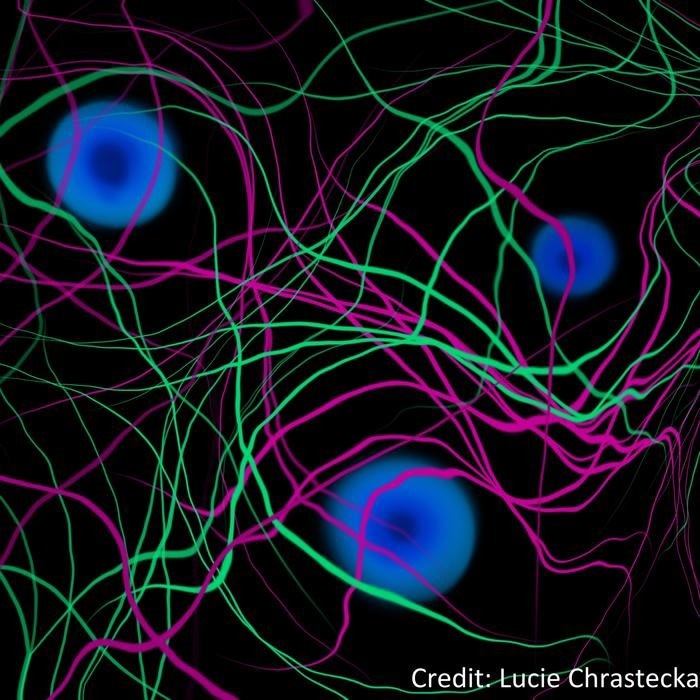
In the study, researchers showed that if magnetic fields are indeed primordial then it could cause an increase in dark matter density perturbations on small scales. The ultimate effect of this process would be the formation of mini-halos of dark matter, which, if detected would hint towards a primordial nature of magnetic fields. Image Credit: Lucie Chrastecka
One fascinating theory is that magnetic fields are primordial, having started close to the moment the universe began. Researchers found that if magnetic fields are primordial after all, then small-scale disturbances in dark matter density could increase as a result.
The process ultimately results in the development of mini-halos of dark matter, which, if they are found, would provide evidence for the primordial origins of magnetic fields. Thus, in an apparent paradox, the nature of a component of the visible universe could be resolved by using information from the unseen part of the universe.
Shedding Light on the Formation of Magnetic Fields
Magnetic fields are ubiquitous in the Cosmos. A possible theory regarding their formation suggests that those observed so far could be produced in the early stages of our Universe. However, this proposition lacks explanation in the standard model of physics. To shed light on this aspect and find a way to detect “primordial” magnetic fields, with this work we propose a method that we could define as 'indirect.' Our approach is based on a question: What is the influence of magnetic fields on dark matter?
Pranjal Ralegankar, Postdoctoral Researcher, SISSA
It is established that there is not a direct interaction.
As Ralegankar explained, “there is an indirect one that occurs through gravity.”
Right From the Primordial Universe
In the primordial Universe, primordial magnetic fields can amplify density perturbations of electrons and protons. When they get too large, they have an effect on the magnetic fields. As a result, oscillations on a tiny scale are suppressed.
“In the study, we show something unexpected. The growth in baryon density gravitationally induces the growth of dark matter perturbations without the possibility of subsequent cancellation. This would result in their collapse on small scales, producing mini-halos of dark matter,” Ralegankar noted.
The author goes on to say that while changes in the density of baryonic matter are neutralized, they nevertheless leave traces through the mini-halos due to gravitational interactions.
Ralegankar concluded, “These theoretical findings also suggest that the abundance of mini-halos is determined not by the present presence of primordial magnetic fields but rather by their strength in the primordial Universe. Thus, a detection of dark matter mini-halos would reinforce the hypothesis that magnetic fields formed very early, even within 1 second after the Big Bang.”
Journal Reference:
Ralegankar, P., et. al. (2023) Dark Matter Minihalos from Primordial Magnetic Fields. Physical Review Letters. doi:10.1103/PhysRevLett.131.231002